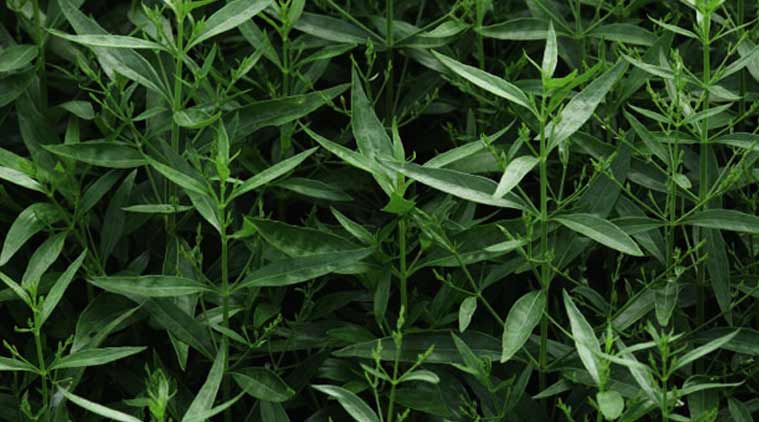Diet Diary: Grandmother’s potion, with Chirata, can treat a variety of health problems
Chirata, indigenous to the Himalayas, is a bitter tasting plant commonly used in traditional medical systems of our country. It is valued for treating a variety of health problems.
 Well-known in traditional systems of medicines such as Ayurveda, Unani and Siddha, its medicinal properties are also reported in the Indian pharmaceutical codex, and the British and the American pharmacopoeias.
Well-known in traditional systems of medicines such as Ayurveda, Unani and Siddha, its medicinal properties are also reported in the Indian pharmaceutical codex, and the British and the American pharmacopoeias.
If your grandmother held your nose and made you drink a bitter potion to prevent boils or pimples, chances are she was giving you what is called Chirata. As always, she had good reasons.
Chirata, indigenous to the Himalayas, is a bitter tasting plant commonly used in traditional medical systems of our country. It is valued for treating a variety of health problems.
Well-known in traditional systems of medicines such as Ayurveda, Unani and Siddha, its medicinal properties are also reported in the Indian pharmaceutical codex, and the British and the American pharmacopoeias. Traditionally, all parts of the plant, including leaves, flowers, roots and stems are used; however, the root is considered to be the most powerful part.
Established benefits in traditional medicine include reducing fevers, joint pains, getting rid of intestinal worms, skin diseases, easing constipation, urinary discharges, ulcers, stomach ache, asthma and bronchitis. It’s also been used as a breath freshener and for reducing nausea during pregnancy.
Traditional Bhutanese medicine uses Chirata for blood purification and to cure common cold, gout disease, diabetes and even malaria. According to Ayurveda, Chirata is excellent for de-worming children and easy to digest.
The bitterness and benefits in treating worms (antihelmintic), fever (antipyretic), and lowering blood sugar (hypoglycaemic) are attributed to Amarogentin (most bitter compound isolated till date), Swerchirin, Swertiamarin and other active compounds, including Mangeferin. It has been reported recently that these phyto-nutrients also impart anti-oxidant, anti-inflammatory and anti-carcinogenic activities to Chirata. In a preliminary study conducted in 2008 by the National Institute of Virology, Chirata showed anti-viral properties against the Herpes virus.
Scientific studies have also shown that Chirata has benefits for those suffering from liver and gall bladder disease, and also has anti-infective properties. Its benefits on gastro-intestinal health have also been reported in several small studies. A study done in 2011 in the University Medical College of Karachi indicated that Chirata can alter gut motility and help in constipation, colic, diarrhoea and asthma.
The medicinal properties of this plant have generated interest in researchers. Larger clinical trials to re-validate these benefits are likely to open new avenues for its multi-spectrum benefits, particularly for its use in pharmaceutical industry for preparation of drugs, for the prevention and treatment of chronic diseases like diabetes, heart disease and cancer.
Meanwhile, never take grandma’s wisdom lightly.





- 01
- 02
- 03
- 04
- 05






















